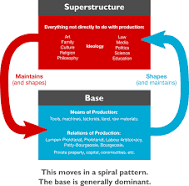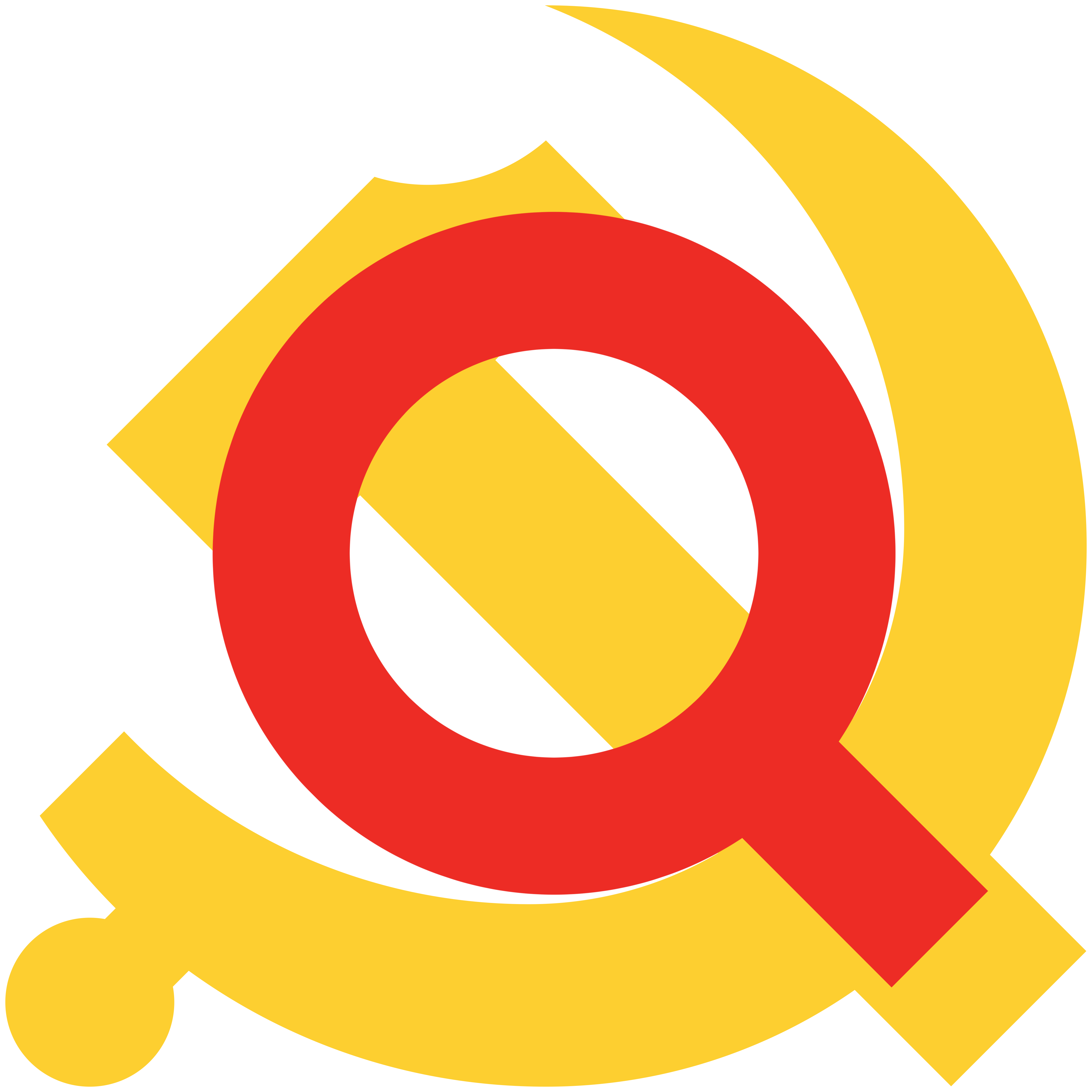Hi comrades. I was in a discussion last week about socialism (like I usually am) and I think we can do some self crit.
I think it’s important to remember that multiple modes of production can (and almost always do) exist in a single soceity at once. There is a dialectic between the systems along with within them.
So when we discuss the social democracies, the soviet states, and modern communist projects like China, we should keep that in mind. There are capitalist, socialist, and communist sectors in many countries now. One of them will dominate, however (Marx says this in the first sentence of Capital).
When looking at the USSR, is had basically no capitalist sector, a very large socialist sector, and a big communist sector. But communist sectors are not unique to the USSR or a DotP. Denmark and the UK both had small communist sectors in things like their healthcare. The period before Thatcher actually saw a UK mix quite similar to post-Deng China–a large capitalist sector, a big socialist sector, and a sizable communit one. (This is likely why the economic performance and worker gains were so high during this time comared to other waning empires like France).
Modern China is very similar. And we should not be ultra leftists and ignore that these are all states in transition. We as communists, and Marxist Leninists do not deny that socialist sectors and communist sectors can appear in other societies. We simply state that unless there is a DotP established, the capitalist sector will erode them away.
Note: The definition of sectors here is whether production is governed by exchange value or use value. Capitalist ones have commodity production i.e. their productive forces are guided by exchange value. Communist sectors are governed by use value (to each according to their need and from each according to their ability). This means Communist sectos don’t have commodities. Socialist sectors are ones where commodity production does exist but exchange value takes a secondary role in governing production.
UPDATE: Two comrades said they did not agree with how I defined socialist here. I don’t think the definition of what true socialism is effects this argument. Feel free to replace “socialism” with whatever word you would describe for a sector where production is not entirely governed by exchange value but still is to some degree.
I hope you all gain something from this. Everyone in our discussion did. I look forward to any other perspectives. I’m originally a USonian so I know I may be narrow sighted.
Also the image is a wallpaper I made of Cuba. I hope you all enjoy.
It looks really nice
I’m glad you like it! I have another one on my profile for the USSR.
- Im not sure I agree with your definitions of communist and socialist sectors, since a socialist mode of production already means a focus on use value. So the definition of a communist sector is redundant.
- “When looking at the USSR, it had basically no capitalist sector” - depends on time period!
- “Denmark and the UK both had small communist sectors in things like their healthcare.” - is a regulated capitalist sector really equivalent to a socialist sector?
- “We simply state that unless there is a DotP established, the capitalist sector will erode them away.” - I would also argue that without a DotP, the socialist sector is always subservient to (the booms and busts) of the capitalist one
All good points!
I think that in many socialist sectors there is a focus on use value for sure, but exchange value is still there in many ways. The USSR had plans but they were monetary plans, for example. At its height, Gosplan only planned around 10k goods in an economy of almost 2 million. Clearly it’s not purely capitalist, but there are still exchange value determinations there (it’s in transition) because these firms were producing things to be sold (though not ALL of what they did was for this).Maybe this is just semantics over the term “socialism”. It did, afterall, change definitions after the first successful revolution (the USSR). I hope my definition made clear what I meant by this. I don’t think the exact definition of socialism effects the idea that there are industries where production and distribution are not entirely determined by exchange value but in a dialectic with use value.
I am of course simplifying but I just wanted to share a nice synthesis that helped us avoid infighting. Thanks for your reply.
I mean, maybe, but what matters what has the most economic, if not official political dominance, by their ownership and thus control…
According to Principles of Communism
{Modern} Communism is the doctrine of the conditions of the liberation of the proletariat.
Note: In essence, the full realization of socialism, from its unshackling and total destruction of Das Kapital, via leadership of the wage laborers or “dictatorship of the proletariat”
Note: But this is more or less a theoretical assumption
And the main opposition to this liberation are the capitalists, especially in this context, the main western-dominating ones and its allied compradors who rely on unequal exchange, privatization and debt to do so …
As long as there are capitalists as a, if not THE ruling class, there is, to me, no such thing as {modern communist}
I mean, there are such societies, which are primitive communist in its base, but so far, the capitalist powers can easily undo and expand their dictatorship or leadership upon them, by their productive forces
Thus, to me, I don’t see anything communist within Britain or Denmark for that reason that, unless you’re describing a political organization whose ideology is of such
I don’t see it necessarily important to focus on exchange value, use-value, or commodity production, to define something as socialist, as they are mostly mediums to continue its activities.
It’s most fruitful to rather focus on the conditions that make it so,
dominant economic ownership, organization, planning, and production (base)
thus resulting indirect control on things like culture, government, law, education and overall society (superstructure)

This indicates the ruling class, whether it be proletariat (wage labor) or bourgeois (capitalist)
From the base, the focus on concepts like use-value, exchange value, or commodity productions will come through, by which the ruling class can fulfill their interests…
That being said, I do agree that economic systems can co-exist with each other, but in a struggle for dominance that is,
Eg. as the new bourgeois ruling class before had to deal with pesky medieval landlords and kings who ask for their rent and medieval guilds, that limit their workforce…
That being said, I do agree that economic systems can co-exist with each other, but in a struggle for dominance that is
That’s what I’m saying and what Marx is saying in the first volume of Capital. Societies can have one mode that predominates but they still have multiple modes.
Regarding the UK, the NHS was almost fully de-commodified at its height. Public schools in many countries operate entirely de-commodified as well (with obvious expections). In modern Cuba the healthcare still works this way, as does the entire education system. This is a sector of the economy that is communist. Many FLOSS software projects are also part of the communist sector as well. Almost no society has a single mode of production. They are, for clear reasons as you pointed out, under attack. The dialectic will be in motion until its resolved. And I call that period of transition “socialism”. I know some take issue with this term.
Thanks for your reply.
The reason I give such long response is because of this small text over here
Denmark and the UK both had small communist sectors in things like their healthcare. The period before Thatcher actually saw a UK mix quite similar to post-Deng China–a large capitalist sector, a big socialist sector, and a sizable communit one.
Uh no, I don’t think public housing and healthcare was necessarily communist, let alone even socialist
If I had to simplify it more down, {Modern} Communism is more or less the total complete result of {scientific} socialism, in dissolving fully any capitalist remnants that oppose it
Thus, I think describing anything as Communist outside of the context of ideological alignment or as the final goal, WHEN THE STRUGGLE BETWEEN PROLE AND CAPITALIST ISN’T DONE, is inaccurate…
Your apparent way of defining socialism and communism as “when the government kind of does stuff” and “when the government totally does stuff” are very bad and undermine the ability to describe either socialism or sectors of the economy. Markets and capitalism are not the same thing, just as public roads don’t make the US “partly communist”
I’m sorry for the confusion, but my definition is not whether the government does something. There are nationalized industries which are still governed entirely by exchange value and not at all by use value.
You are absolutely correct that markets != capitalism. I was not trying to make that argument.
My friend, terms like “State-owned enterprise” can be helpful here.
So in the example of a “communist sector” such as healthcare in the UK, who produces the medicine and equipment, who funds the research and personnel, who builds the pharmacies and clinics/hospitals?
Here’s another way to put it, a child might think parents are “communist” because they give food and shelter whenever needed, but how do the parents afford this food and shelter, by honest labour or by pillaging? You cannot single out a sector of the economy and label it something so antithetical to its relation within the overall economy.
My perspective would be that a government providing services like healthcare which is funded via taxation is not communist in any way. It’s just called government.
Maybe in a shithole where your government just taxes you and then you still fork out for healthcare, it might look like communism… But most people would just call it public services.





